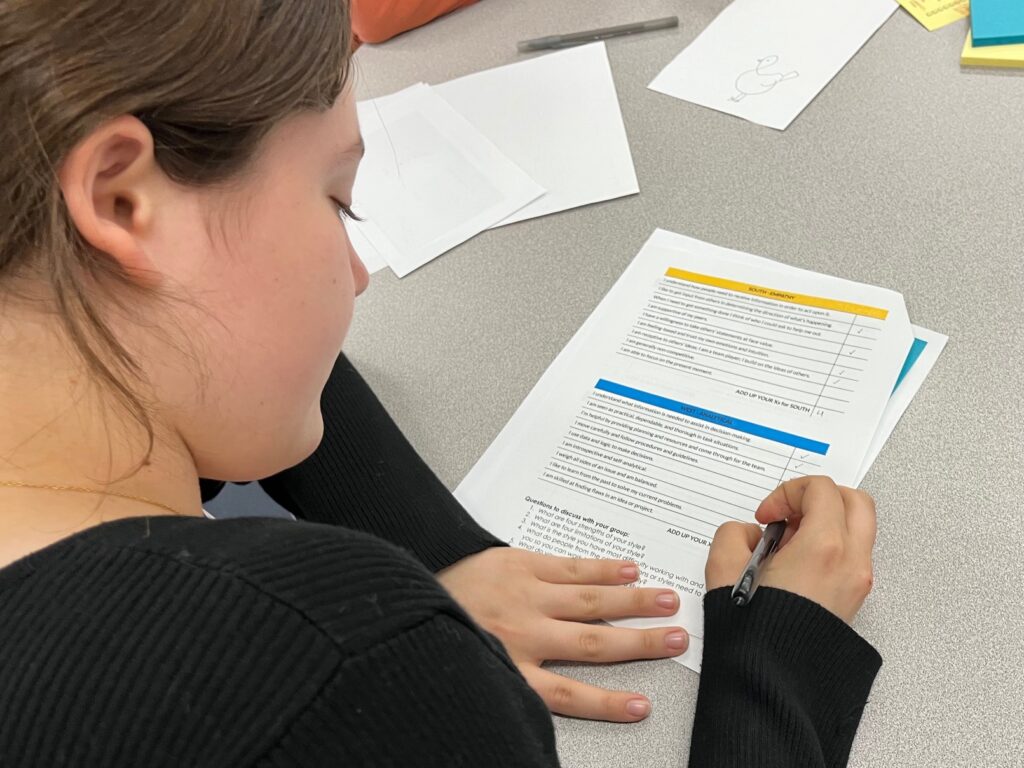What does it mean to be an effective leader? This question was at the heart of the retreat facilitated by the members of the Milton High School Youth Leadership Executive Council. The council is made of nine youth who serve in a leadership capacity at the school, whether that be as a team captain, club leader, or student council representative. Each of the council members invited two or three other students to take part in a three hour retreat in which they learned about leadership styles, discussed how their identities play a role in leadership, as well as took part in some fun community building games.
One of the first activities that the youth participated in was a reading of Beth Strano and Mickey ScottBey’s poem “An Invitation to Brave Space.” The facilitators asked participants to identify a word or phrase from the poem that resonated with them. For this group, one of the phrases that seemed to resonate most was the line, “this space will not be perfect.” Many of the youth talked about the pressure they often feel for themselves or particular areas of their lives to be “perfect” and how that can get in the way of authentic conversation with each other. Director of Student Engagement Mike Abbott, our adult partner at Milton, shared the quotation by artist Salvador Dali, “Have no fear of perfection, because you’ll never achieve it,” and how he returns to these words again and again when he thinks about his role at the school.

Next the team took part in an activity meant to explore how identity plays a role in leadership, the “identity iceberg.” The youth listed the aspects of themselves that appear “above the water,” what other people perceive of them, and then listed elements of their identity that are “below the surface.” In small groups, each participant then shared one or two aspects of their identity, and discussed why talking about what is below the surface is vital when it comes to building relationships with each other, and how doing so can build empathy.
Finally, the group took a leadership style assessment, known as Compass Points. This assessment helps people identify their leadership style, whether they are North (action-oriented), East (big-picture vision oriented), South (empathy-oriented), or West (detail-oriented). After each member finished their assessment, they gathered with others who shared their leadership style, and discussed their strengths and limitations, as well as what those who identify as the three other leadership styles need to know about them to work well together. We discovered that this team has many South-identifying leaders! During the full group share-out, one student observed how important it is to have a mix of leadership styles on a team; that each of the styles provides a counterbalance to the others.

During the final circle round, the youth shared how their understanding of themselves as leaders might have changed over the course of the day. One youth, who had described herself as a “calm” leader, said she now also considers herself a “confident” leader. Another shared that at the start of the day she identified as “confrontational,” but would now also describe herself as an “intuitive.” It was fascinating to hear how many of the students’ perceptions of themselves had grown and shifted after taking part in the leadership activities.
We are thrilled with how expertly the Youth Leadership Executive Council welcomed and led their peers at this kick-off retreat, and look forward to our next gathering in December!

